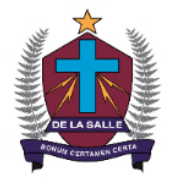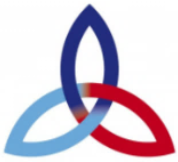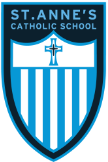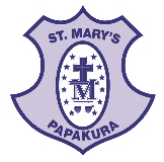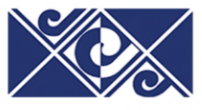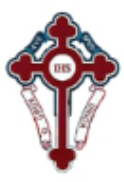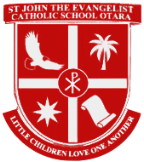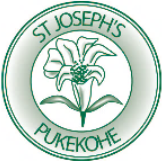SOUTH AUCKLAND CATHOLIC SCHOOLS COL REPORT 2019
2019 began with the South Auckland Catholic Schools Community of Learning interviewing for the positions of Across School and Within School Lead teachers. 2018 had seen the end of the two-year contract for ASLT’s and the team said goodbye to Matthew Norman who made the decision to not reapply. The ensuing process led to the appointment of one new Across School lead teacher, Ronise Laumemea from De La Salle College. Previous ASLT members who applied and were reappointed were: Kerryn Baker, Lynette Hay and Judith Fromont.
A focus of 2019 was the implementation of a new CoL strategic direction. At the end of 2018 Principals, DPs and APs of the CoL had met and worked through a review process, looking at successes and challenges, leading to the establishment of new strategic targets for 2019 - 2021. Data gathered at the end of 2018 had shown growth across schools towards meeting their initial targets set in 2016.
Data Results 2016-2018
Boys
2016: There were 1225 Boys in Year 1 to 8. 714 ( 58%) were At or Above the National Standard in Writing.
2017: There were 1288 Boys in Year 1 to 8. 856 (66%) were At or Above the National Standard in Writing. (+8%)
2018: There were 1353 Boys in Year 1 to 8. 983 ( 72%) were At or Above the National Standard in Writing.
Initial Target was to reach 80% achieving AT or Above by the end of 2018.
All Maori Students
2016: There were 227 Māori students in Y1 to 8. 151 ( 67 %) were AT or Above the National Standard in Writing.
2017: There were 281 Māori students in Year 1 to 8. 214 ( 77%) were At or Above the National Standard in Writing (+10%).
2018: There were 296 Maori students in Y1 to 8. 243 (83%) were AT or Above the curriculum level for Writing.
Initial Target was to reach 95% achieving AT or Above by the end of 2018.
All Pasifika Students
2016: There were 1503 Pasifika Year 1 to 8 students. 974 ( 65%) were At or Above the National Standard in Writing.
2017: There were 1546 Pasifika students in Year 1 to 8. 1049 ( 68%) were At or Above the National Standard in Writing. (+3%).
2018: There were 1647 Pasifika Year 1 to 8 students. 1145 ( 69%) were At or Above the National Standard in Writing.
Initial Target was to reach 80% achieving AT or Above by the end of 2018.
NCEA
Level 1
2016: There were 151 (2016) students who sat NCEA Level 1. 108 (72%) achieved NCEA Level.
2017: There were 153 (2017) students who sat NCEA Level 1. 121 (79%) students achieved NCEA Level 1. (+7%).
There was a 5% increase in Merit endorsements from 32 to 39 students (2016 - 17).
The CoL's achievement goal is to increase those achieving Level 1 to 90%, by EOY 2018 A shift of 17 students.
2018: There were 147 (2018) students who were entered for NCEA Level 1. 109 (74%) students achieved NCEA Level 1. ( -5% )
In 2018, there was a 10% increase in Merit endorsements from 39 to 43 students (2017 - 2018).
Level 2
2016: There were 146 (2016) students who sat NCEA Level 2. 119 (82%) achieved NCEA Level 2.
2017: There were 154 (2017) students who sat NCEA Level 2. 135(88%) achieved NCEA Level 2. (+6%)
There was a 2% increase in Merit endorsements from 20 to 25 students (2016 - 17) and a 3% increase in Excellence endorsements from 8 to 14 students (2016 - 17).
2018: There were 147 (2018) students who were entered for NCEA Level 2. 129 (87%) students achieved NCEA Level 1. ( -1% )
Level 3
2016: There were 124 (2016) students who sat NCEA Level 3. 78 (64%) achieved NCEA Level 3.
2017: There were 126 (2017) students who sat NCEA Level 3. 90 (72%) achieved NCEA Level 3.
There was a 4% increase in Excellence endorsements from 3 to 7 students (2016 - 17) and a 16% increase in attainment of those achieving University Entrance (30% to 46%) 58 out of 126 students.
2018: There were 147 (2018) students who were entered for NCEA Level 3. 95 (64%) achieved NCEA Level 3.
This was the largest number of students to achieve NCEA Level 3. However, it was also the largest cohort for Year 13.
46 students of the 95 (48%) achieved University Entrance.
From the analysis, a new strategic direction was developed that would best meet the needs of the schools within the CoL and in keeping with the focus towards meeting the Achievement challenges. This would be through:
Capability - Delivering Pedagogy in Digital Technology.
Well Being - Strengthening our well-being culture in an inclusive nurturing faith environment.
Engagement - Using effective engagement practise to improve outcomes for all.
In the first term of 2019, the ASLT team were asked to go into schools inquiring into how the three strategic goals were envisioned within individual school contexts. This included looking at effective practice and processes and the identification of needs.



The CoL ASLT team developed a report on its findings, along with reference to best practice, titled: Capability, Wellbeing and Engagement: Effective practice in the South Auckland Catholic Schools Kahui Ako.
This is to be made available as a resource for schools, as they address the strategic direction of the CoL in their own contexts.
In addition, and in response to the findings of the report, the team worked with Scott Beattie, from the Springboard Trust, to develop strategic initiatives and actions around each of the three goals, looking at 2019 and 2020.
Focus for 2019-2020
Capability: Delivering Pedagogy in Digital Technology
By December 2020 our teachers are ready and equipped to deliver the digital technology strand of the Technology Curriculum. Digital Technology will support the delivery of the wider school curriculum.
Initiatives include:
- PLD for teachers in the implementation of the Digital Curriculum with ongoing support and direction within schools as requested
- Coaching and mentoring across levels. Provided through ongoing workshops and one to one support where requested
Well Being: Strengthening our well-being culture in an inclusive nurturing faith environment.
By December 2020 all students, staff and whanau feel valued and have a sense of belonging and purpose.
Initiatives include:
- Collection and analysis of current data to inform direction
- Provide resource for schools from Ministry sources
- Develop actions in conjunction with Principals
Engagement - Using effective engagement practise to improve outcomes for all.
By December 2020 we have gauged, can measure and track engagement through the community to deliver best practices across all schools.
Initiatives include:
- Developing a dashboard for schools to share data
- Inputting best practice strategies on community/whanau engagement with individual schools based on strategic plan and needs, and to help with implementation
- Facilitate and support the building of effective transition processes between primary and secondary schools in the CoL where requested.
Current position
In Term 2 CORE Education facilitated a series of professional development days looking at the Digital Technologies Curriculum, titled Deep Dive. Through this, school leaders and teachers across school levels from year 0 to 10, delved into the curriculum, developing understanding and means for implementation, with practical examples and teacher resource to explore. Initial feedback was positive, with the majority of teachers taking ideas for direction and immediate implementation back into schools.


Alongside externally provided PLD, the CoL has continued to offer support in schools with coaching and mentoring workshops and one to one and group teacher support across a wide range of areas as part of the strategic initiatives. This has included support in the implementation of The Digital Technology curriculum, Maths and Literacy support and development, Pasifika Engagement and Transition between High schools and key feeder primary schools. There has also been initial development of a Community of Learning between the In-School Lead teachers in the High Schools.
A further initiative has been developing an opportunity for more efficient ways to communicate and connect, with the creation of a CoL facebook page and CoL website. In term 3 these sites will be launched at an event with teachers and BOTs invited to attend, giving a chance for new faces to learn about the CoL and an opportunity to network and reconnect, for those already involved.

